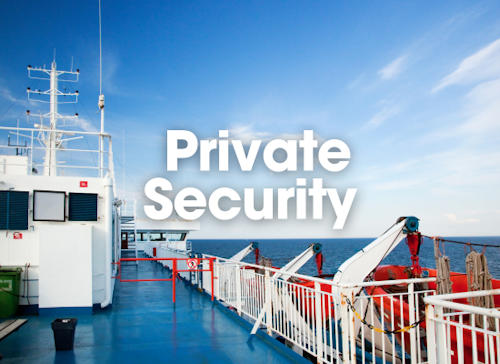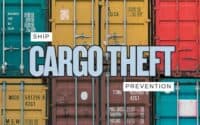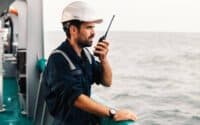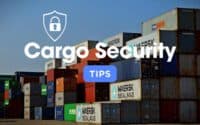10 Key Questions to Ensure You Pick the Right Maritime Security Company

When it comes to protecting your maritime assets, selecting the right private security company is crucial. The threats of piracy, theft, and terrorism at sea make this a critical decision for any shipowner or operator. Here are the top 10 questions you should ask to ensure you’re hiring a capable and reliable maritime security firm.
* Please send feedback/suggestions to editor @ shipuniverse.com
1. What is your experience in maritime security operations?
Experience is a key factor when choosing a private security company for maritime operations. It’s important to understand not just the quantity of their experience, but also the quality. Ask potential security firms about:
- The number of years they have been active in maritime security.
- Types of operations they have handled, such as anti-piracy, anti-smuggling, or surveillance.
- Specific regions where they have operated, noting that some areas, like the Gulf of Guinea or the Strait of Malacca, have unique challenges.
- Case studies or references from previous operations, which can provide insights into their expertise and effectiveness.
This information will help you gauge whether the company has the practical knowledge and skills needed to navigate the complex and often hazardous conditions at sea.
2. Are your personnel properly trained and certified for maritime security?
The quality of personnel a security company employs directly impacts the effectiveness of their service. Proper training and certification are not just advantageous but often legally required for operating in international waters. Inquire about:
- The specific training programs their personnel undergo, particularly focusing on maritime security.
- Certifications that are recognized internationally, such as those from the International Maritime Organization (IMO).
- Continuous training practices to keep their team updated on the latest security protocols and threats.
- The background and qualifications of their training staff.
Ensuring that the security personnel are well-trained and certified not only enhances the safety of your vessel but also ensures compliance with international maritime laws and regulations.
3. How do you ensure compliance with international maritime security regulations?
Compliance with international laws and regulations is crucial for any maritime security operation. Non-compliance can lead to legal issues, fines, and restrictions that might affect your operations severely. When discussing with potential security providers, focus on:
- Their knowledge and implementation of relevant international regulations, such as the International Ship and Port Facility Security (ISPS) Code and the guidelines provided by the International Maritime Organization (IMO).
- Specific measures they take to ensure that all operations are compliant with the laws of the waters in which they operate.
- Their history of compliance issues, if any, and how they resolved them.
Understanding their compliance strategies will help you assess whether the security company is capable of protecting your assets without causing legal complications.
4. What types of security equipment and technology do you use?
The effectiveness of a maritime private security company often depends on the technology and equipment they utilize. Advanced security technologies can enhance the capability to detect and respond to threats effectively. When evaluating security providers, consider asking about:
- The types of security equipment they use, such as firearms, non-lethal weapons, surveillance systems, and communication devices.
- Any advanced technologies like drones, thermal imaging, or radar systems that they incorporate into their security measures.
- How they maintain and update their equipment to ensure reliability and effectiveness in critical situations.
This question will give you insight into the operational capabilities of the security firm and whether they have the technological edge necessary to deal with potential maritime threats effectively.
5. What is your incident response protocol?
Understanding how a security company responds to incidents is crucial for assessing their effectiveness and preparedness. A well-defined incident response protocol can make the difference between a well-managed situation and a security failure. Consider asking:
- Details about their standard operating procedures when an incident occurs, including escalation processes and communication protocols.
- How they coordinate with local authorities and international bodies in the event of an incident.
- Examples of past incidents they have managed and the outcomes of these situations.
- The frequency and detail of training exercises they conduct to ensure their team is prepared for real-life scenarios.
This question will help you evaluate the readiness and resilience of the security firm in handling emergencies and unexpected threats.
6. Can you provide detailed case studies or references?
Verifiable proof of past performance is a strong indicator of a company’s capability. Case studies and references can provide insight into the firm’s operational history and reputation among previous clients. When asking for this information, focus on:
- Specific case studies that highlight their approach and effectiveness in managing maritime security threats.
- References from previous clients, preferably in similar sectors or with similar security needs as your own.
- Any awards, recognitions, or industry accreditations that further validate their expertise and reliability.
This information will give you a clearer picture of what it’s like to work with the security company and how they have successfully handled complex security situations in the past.
7. What are your communication protocols during an operation?
Effective communication is critical during maritime security operations, particularly in crisis situations. It’s essential to understand how the security company ensures robust communication channels, both internally among team members and externally with the ship’s crew and relevant authorities. Questions to consider include:
- The communication tools and technologies they use, such as satellite phones, radios, or encrypted digital communication platforms.
- Their protocols for keeping the ship’s captain and crew informed during a security incident.
- How they ensure continuous communication in different scenarios, including equipment failures or in areas with poor connectivity.
- Training provided to their personnel on effective communication under stress.
This information will help you assess the reliability and effectiveness of the company’s communication strategies in critical situations.
8. What insurance coverage do you provide?
Insurance coverage is an essential factor to consider, as it protects both your assets and the security company’s personnel in case of an incident. A reputable maritime security company should have comprehensive insurance that covers potential liabilities and damages during their operations. Questions to ask include:
- Details of their insurance coverage, including the extent of liability, personnel injury, and property damage coverage.
- Whether their insurance policy is specifically tailored to maritime security operations.
- The process for claims in case of an incident involving their personnel or your property.
- Confirmation that their insurance complies with international maritime security standards and regulations.
Understanding the scope of the security company’s insurance coverage ensures that you are adequately protected against unforeseen liabilities and financial losses during their tenure of service.
9. How do you handle legal and jurisdictional issues?
Maritime operations often span multiple legal jurisdictions, and the handling of legal matters by a security company is crucial to ensure compliance and minimize risk. When evaluating potential security firms, consider asking:
- Their experience with the legal complexities of operating in international waters and different territorial jurisdictions.
- Procedures they have in place for dealing with jurisdictional changes during a voyage.
- Their legal team’s qualifications and their approach to international maritime law.
- Past examples of how they have handled legal disputes or complications that arose during their operations.
This question will help you gauge the security company’s expertise in navigating the intricate legal landscape of international maritime operations, ensuring they can operate effectively without legal entanglements.
10. What ongoing support and reporting can we expect from your company?
Regular updates and support from your maritime security provider are vital to maintaining trust and ensuring effective security management. It’s important to understand what level of ongoing engagement and reporting the company offers. Ask about:
- The frequency and detail of reporting during and after security deployments.
- The availability of support teams to address any concerns or changes in the security situation.
- How they handle feedback and incorporate client input into their operations.
- Whether they provide post-mission analysis and debriefings to help improve future security measures.
Understanding the level of ongoing support and the comprehensiveness of their reporting will help you assess whether the security company is committed to transparency and continuous improvement in their services.
Choosing the right maritime private security company is crucial for safeguarding your maritime operations against a range of security threats. The questions outlined provide a robust framework to assess potential security partners, ensuring they not only meet the necessary legal and operational standards but also align with your specific security needs. By thoroughly vetting each candidate through these critical inquiries, you can build a partnership that enhances safety, minimizes risk, and promotes a secure maritime environment.

Do you have a Maritime Product or Service that may be of interest to Shipowners? Tell us about it here!
Do you have feedback or insights? Please reach out to editor @ shipuniverse.com



